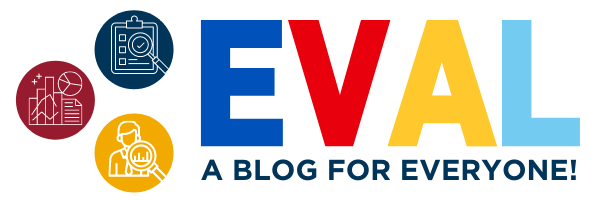Ask the Experts - Submitting Proposals to AERA
Ask the Experts - Submitting Proposals to AERA
Like many other educational researchers, every year in July, the KU RED team can be found preparing our proposal submissions for the American Educational Research Association’s (AERA) Annual Meeting. As we bounce ideas off one another, we couldn’t help but stop and reflect on the experiences and expertise each of the team members brings to the table when it comes to preparing a conference submission.
With so much experience in the RED team, we thought why not share our lessons learned and advice with students, early career scholars, and first-time AERA submitters to help them navigate this process. So, together we answered the following question:
What is one piece of advice you have for students and early career professionals who are getting ready to submit a proposal for the American Educational Research Association’s Annual Conference?
Adam
Begin any proposal by looking at your desired conference’s presentation list from the previous year. Look for titles and topics that are similar or relevant to your work and ask yourself what lessons can be learned. Has someone already presented on a very similar topic to your work? If so, perhaps your work could cite that piece and let your academic piece build upon that body of research. Has no one presented on a topic like yours? That could mean that your work doesn’t fit here and is perhaps best suited for another conference type or it could also mean what you have is novel and needs to be shared with this audience. After your search of the conference database, take what you found back to your team or advisor to share and formulate the next steps in your proposal process.
Lauren
How do you eat an elephant (or large piece of teriyaki tofu) – one bite at a time. The same goes for a professional presentation proposal; you must look at it as multiple small sections. My best advice is to begin with your purpose section and to use it as your touchstone as you move through the other sections. By splitting the proposal up into more manageable chunks, you will be able to tackle the proposal over the span of a few weeks rather than rushing to write the entire thing at once. This will result in a more solid proposal.
Nadia
If you are submitting your proposal to the AERA conference for the first time it is very important to familiarize yourself with the submission criteria and requirements. The AERA Call for Submissions is a very extensive document, but it is worth spending time on and requires careful examination. It is crucial to find the best fit for your paper and select the division/section that will be most interested in your research. If you get confused, seek help from more experienced presenters.
Joanna
Don’t worry about whether your topic or your results are sufficiently “groundbreaking” or innovative. Even if your work is in a popular area of research, your unique perspective makes it, by definition, new and different. Further, one of the purposes of AERA is to connect people who are doing similar work, so that they can help one another!
As you are putting the finishing touches on your conference proposal submission just remember - you got this, and we can’t wait to see you in Chicago in April 2023!

Contributed By The RED Evaluation Team
The Research, Evaluation & Dissemination Department in the Center for Educational Opportunity Programs. We currently conduct research and evaluation of the CEOP’s federally funded college access programs including GEAR UP, TRIO, and other college access programs.
Follow @CEOPmedia on Twitter to learn more about how our Research, Evaluation, and Dissemination team leverages data and strategic dissemination to improve program outcomes while improving the visibility of college access programs.
